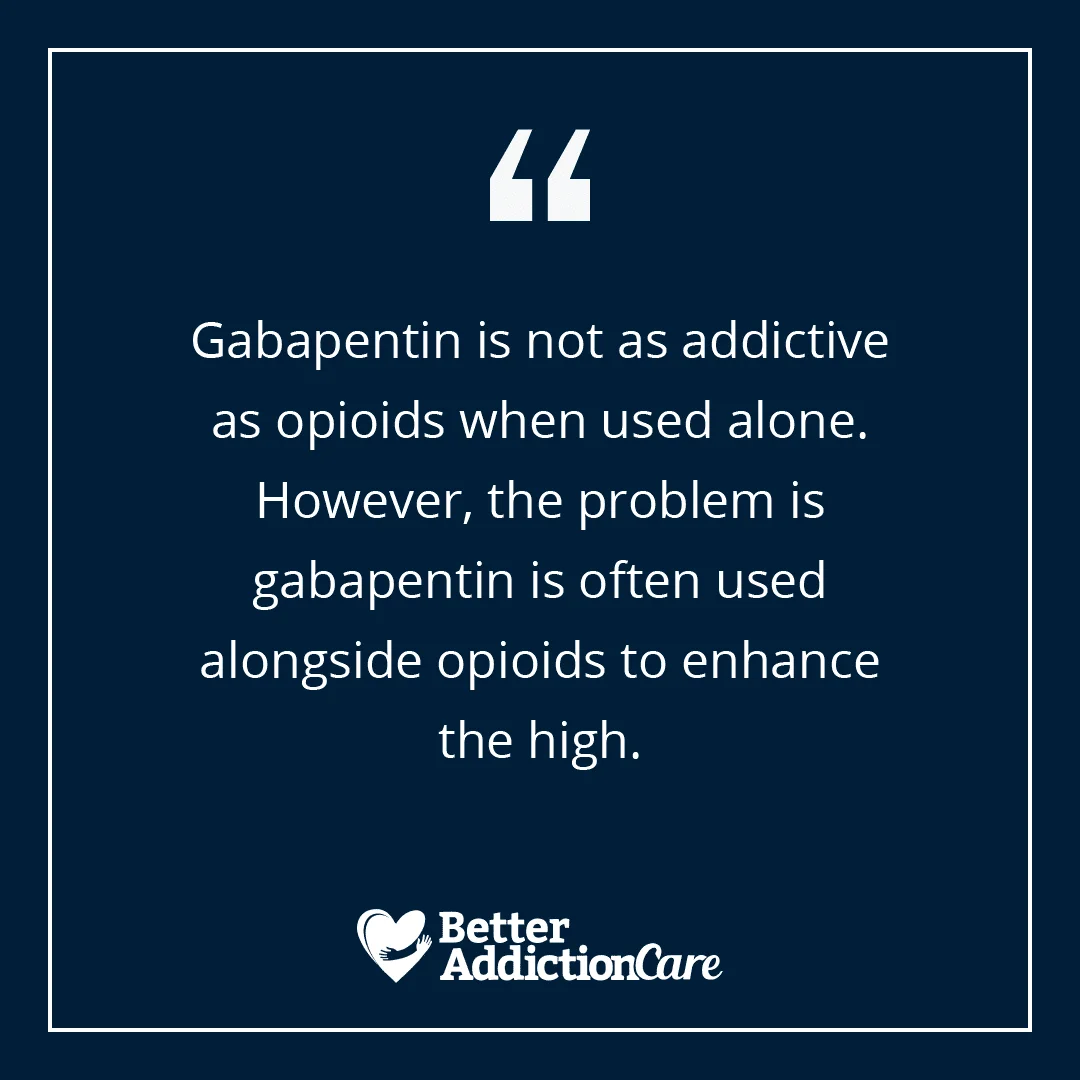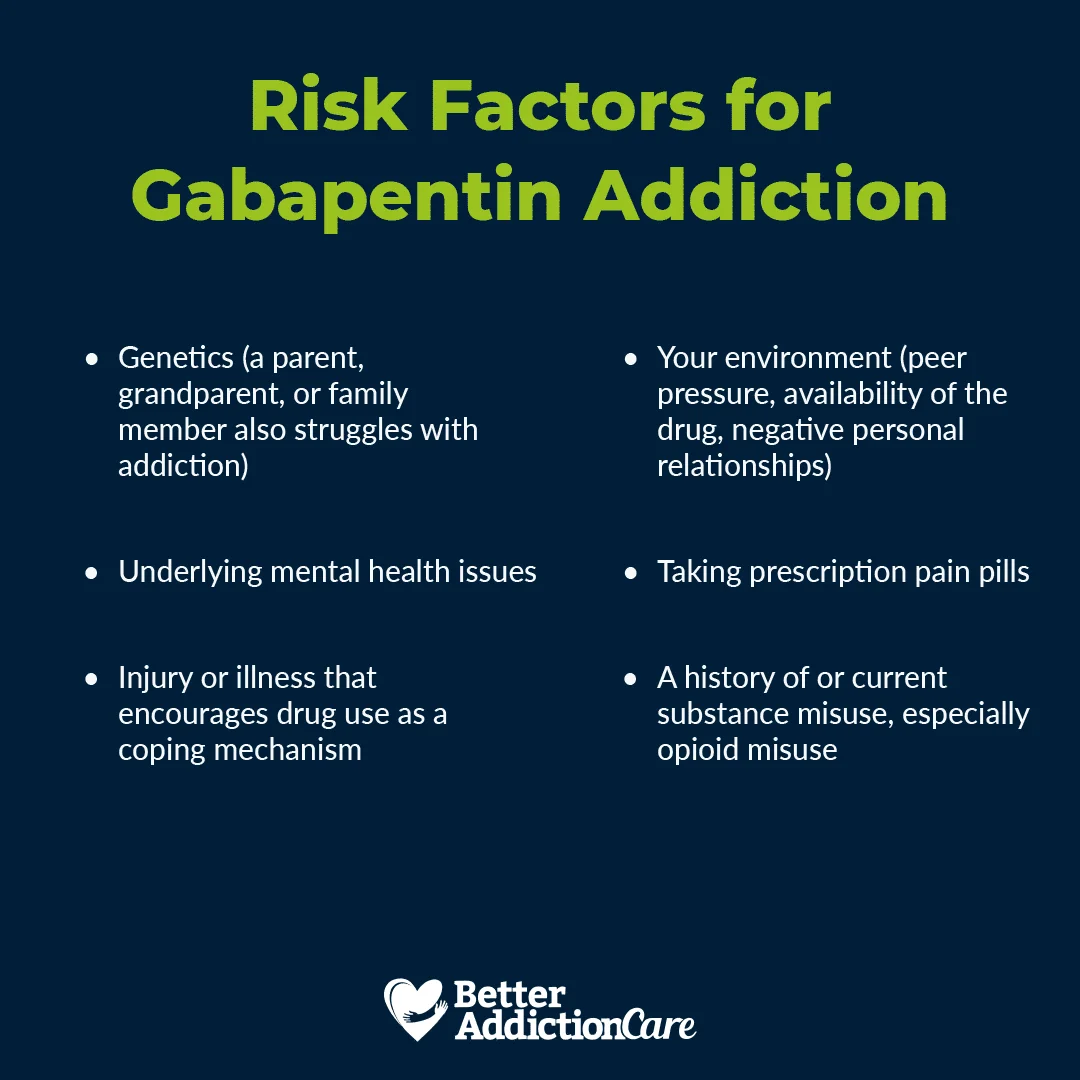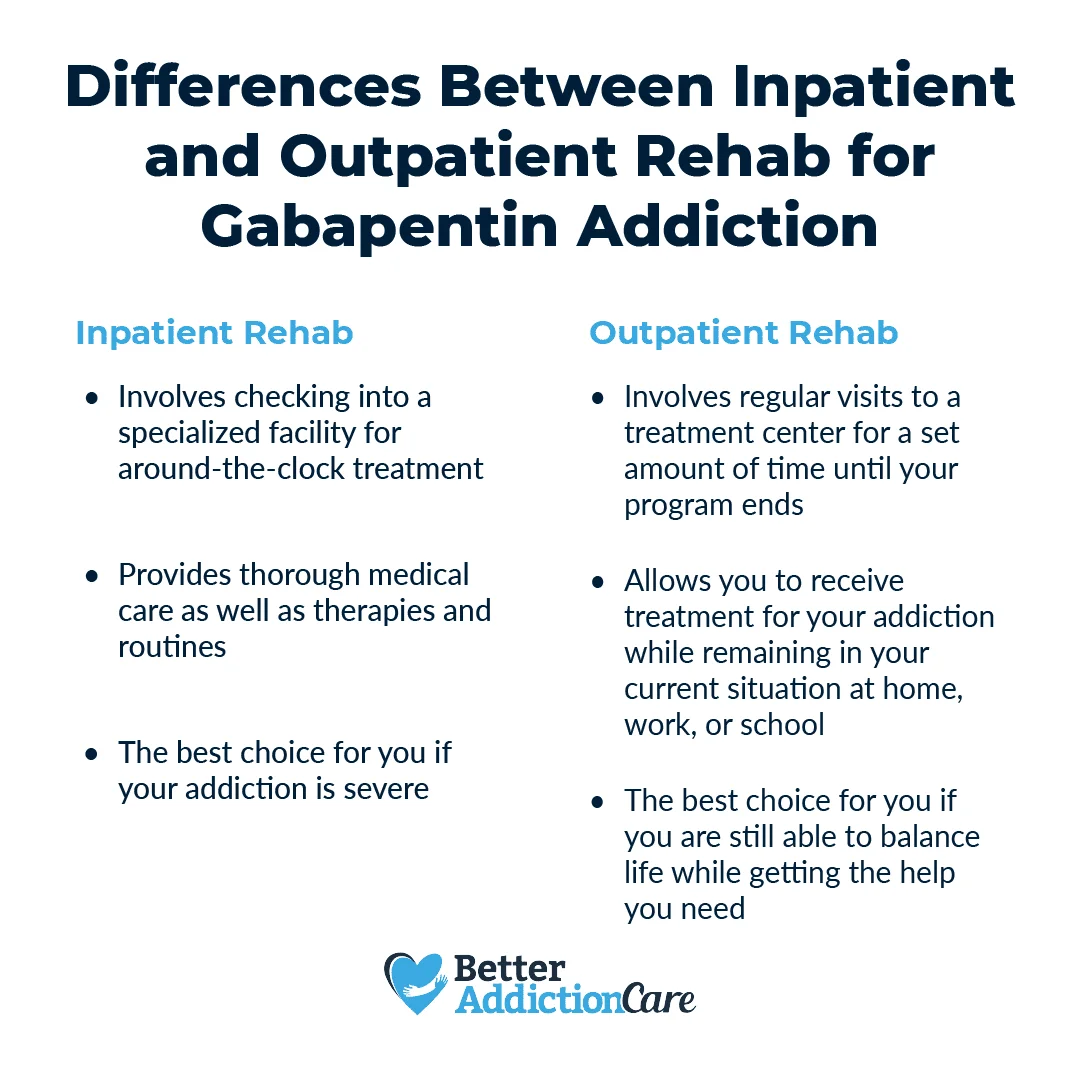Is Gabapentin Addictive?

Gabapentin is a potentially addictive drug prescribed for the treatment of seizures and nerve pain. Gabapentin is not a narcotic or an opioid, but in certain situations, it may be diverted and misused, leading to addiction. While addiction depends on many variables, people who misuse gabapentin as well as those with a history of opioid, alcohol, or benzodiazepine misuse may be most susceptible. Learn about the risk factors and signs and symptoms of gabapentin addiction, as well as how to find treatment.
How Addictive is Gabapentin?
In the past, gabapentin was presumed to be non-addictive, which is why doctors prescribed it readily for off-label uses, but thanks to studies on the subject, experts now know this is not the case.An estimated 1% of the population misuses gabapentin in order to get high, and chronic use can lead to addiction. Moreover, about 15-22% of people who misuse opioids also misuse gabapentin. Gabapentin is not as addictive as opioids when used alone. However, the problem is gabapentin is often used alongside opioids to enhance the high. This is a form of polydrug use.

Generally, gabapentin works by binding to a specific site on voltage-gated calcium channels in the brain, which helps control neurotransmitter release between nerve cells. Particularly, gabapentin is chemically similar to and mimics gamma-aminobutyric acid (GABA), a neurotransmitter that calms your firing nerves in the central nervous system. This is why the drug is FDA-approved for treating epilepsy and nerve pain disorders. It’s also why it reportedly produces relaxation and euphoria and has addiction potential.
The danger in gabapentin addiction is threefold:
- How easy the drug is to acquire—in most states it is not classified as a controlled substance, making it easy to obtain
- How cheap it is to buy under the table
- How it’s used to enhance the high another drug induces—the combination of gabapentin with opioids, sedatives, or other drugs is often what makes it fatal
Risk Factors for Gabapentin Addiction
Risk factors increase your chance of developing a gabapentin addiction. Some common risk factors include:
- Genetics (a parent, grandparent, or family member also struggles with addiction)
- Socioeconomic status
- Childhood sexual, physical, or emotional abuse
- Childhood neglect
- Mental health conditions, such as depression, anxiety, and attention deficit hyperactivity disorder (ADHD)
- Your environment (peer pressure, availability of the drug, negative personal relationships)
- Trauma
- Taking prescription pain pills
- Injury or illness that encourages drug use as a coping mechanism
- Misuses other substances, particularly opioids

Keep in mind that while risk factors influence the development of a gabapentin addiction, they ultimately don’t decide your fate. Having one or more of the above risk factors may increase your chances of becoming addicted to gabapentin, but that doesn’t necessarily mean you’ll develop an addiction. Many other factors can protect you from becoming addicted, like drug education, therapy, and more.
Signs and Symptoms of Addiction
According to the Diagnostic and Statistical Manual of Mental Disorders, Fifth Edition (DSM-5), the signs and symptoms of gabapentin addiction include:
- Taking gabapentin in larger amounts or for longer periods than originally intended
- Wanting to cut down or stop your gabapentin use but being unable to
- Spending most of your time either obtaining, using, or recovering from the use of gabapentin
- Experiencing cravings for gabapentin or urges to use gabapentin
- Failing to manage your life at home, work, or school because of your gabapentin use
- Continuing to use gabapentin even when it causes relationship problems with your family or friends
- Giving up or missing important activities because of your gabapentin use
- Using gabapentin over and over, even when it’s dangerous
- Continuing to use gabapentin even when you know it might have caused a physical or psychological problem or made one you already have worse
- Needing to use more gabapentin to get the effect or high you want (tolerance)
- Developing gabapentin withdrawal symptoms, only relieved by taking more gabapentin
If you need help getting treatment for a gabapentin addiction, talk to a treatment specialist today to discuss your rehab options. Give us a call at 1-800-429-7690.
What is the Difference Between Dependence and Addiction?
To understand the difference between gabapentin dependence and gabapentin addiction, you need to separate them into two categories: physiological and behavioral.
Gabapentin dependence is largely physiological. When you’re dependent on gabapentin, your body has adjusted to the presence of this drug and needs it in order to function optimally. When you suddenly stop taking it, you will experience gabapentin withdrawal symptoms, which are unpleasant and distressing. Dependence can occur in someone who is taking this medication exactly as directed.
Gabapentin addiction is a pattern of behaviors. It’s about compulsion—an inability to change your drug-seeking behavior even though it causes harm to yourself or negative consequences.
Find the Best Rehab for Gabapentin Addiction
If you or someone you know is addicted to gabapentin, rehab can help. The right program will provide the personalized treatment you need for not only gabapentin addiction but also safe withdrawal and recovery.
Two options exist for gabapentin addiction treatment: inpatient and outpatient.
Inpatient rehab involves checking into a specialized facility for around-the-clock treatment. Here you’ll receive thorough medical care as well as therapies and routines to help you break your gabapentin addiction and prepare you for a sober life. This is the best choice for you if your gabapentin addiction is severe.
Outpatient rehab will allow you to receive treatment for addiction while remaining in your current situation at home, work, or school. You’ll regularly visit a treatment center for a set amount of time until your program ends. Often, this means an hour-long visit daily, with one longer session per week for group sessions or additional therapies. This is a good choice if you don’t need the intensive intervention that inpatient rehab provides and if you’re still able to balance life while getting the help you need.

Resources
Treatment Centers in Virginia
 123
123
 123
123
 123
123


